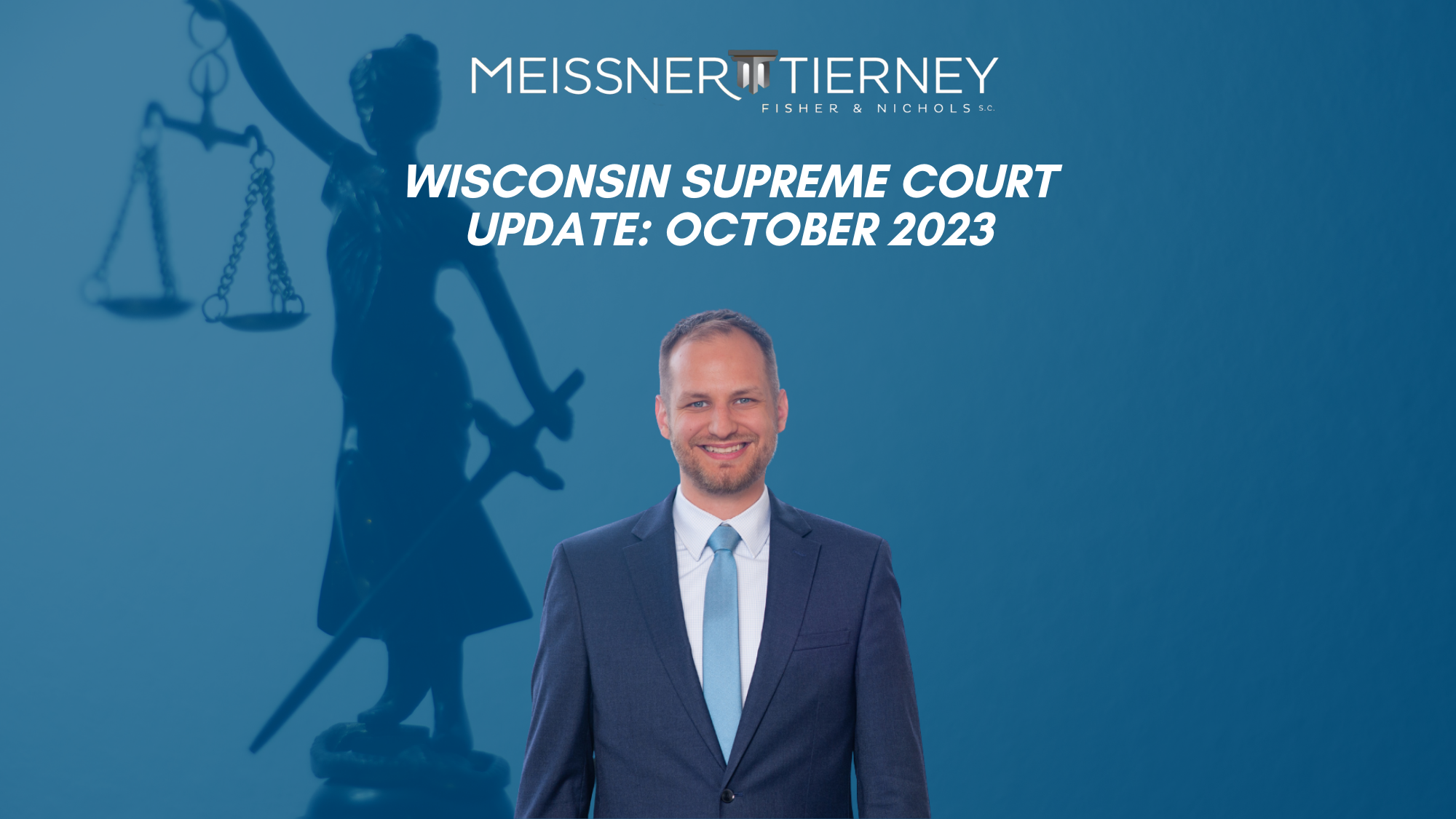The October oral argument calendar lists a measly two cases, both of which will be argued on October 9. That’s eight fewer cases than the court heard last October. In this month’s column, take a look at the sole civil case on the court’s October calendar and take a peek at a case recently granted for review.
Cases Decided
No decisions were issued in the last month.
Up for Review
Andrade v. City of Milwaukee Board of Fire and Police Commissioners, No. 2020AP333
Due Process
Oral Argument: October 9
October’s sole civil case set for oral argument stems from the discharge of former Milwaukee Police Officer Erik Andrade who was present at the arrest of then-Bucks player Sterling Brown. Officer Andrade was discharged after Sterling Brown’s civil case against the department identified racist and inappropriate content Andrade posted to Facebook. The question on appeal is whether Officer Andrade was afforded sufficient notice of the evidence supporting his termination under the Due Process Clause as interpreted by Mathews v. Eldridge, 424 U.S. 319 (1967), and Cleveland Board of Education v. Loudermill, 470 U.S. 532 (1985). During the administrative review of Andrade’s termination, the police chief testified that he decided to terminate Andrade (rather than simply impose discipline) based on an opinion from the district attorney’s office that Andrade could no longer testify in court because the Facebook posts would be used to impeach his credibility. Andrade now argues that the department’s failure to notify him that his inability to testify formed part of the rationale for his termination violated due process. The court of appeals rejected Andrade’s argument in a 2-1 decision.
New to the Docket
State v. R.A.M., No. 2023AP441
Termination of Parental Rights
Petition for Review Granted: September 26, 2023
In this case (which is largely sealed from public view), the court will consider a mother’s arguments that the circuit court improperly terminated her parental rights (1) by concluding she had waived her right to counsel, (2) because the court was without competency to proceed under Wis. Stat. § 48.23(2)(b)3., and (3) because the termination violated the Due Process Clause. The court of appeals previously reversed the order terminating the mother’s parental rights.





